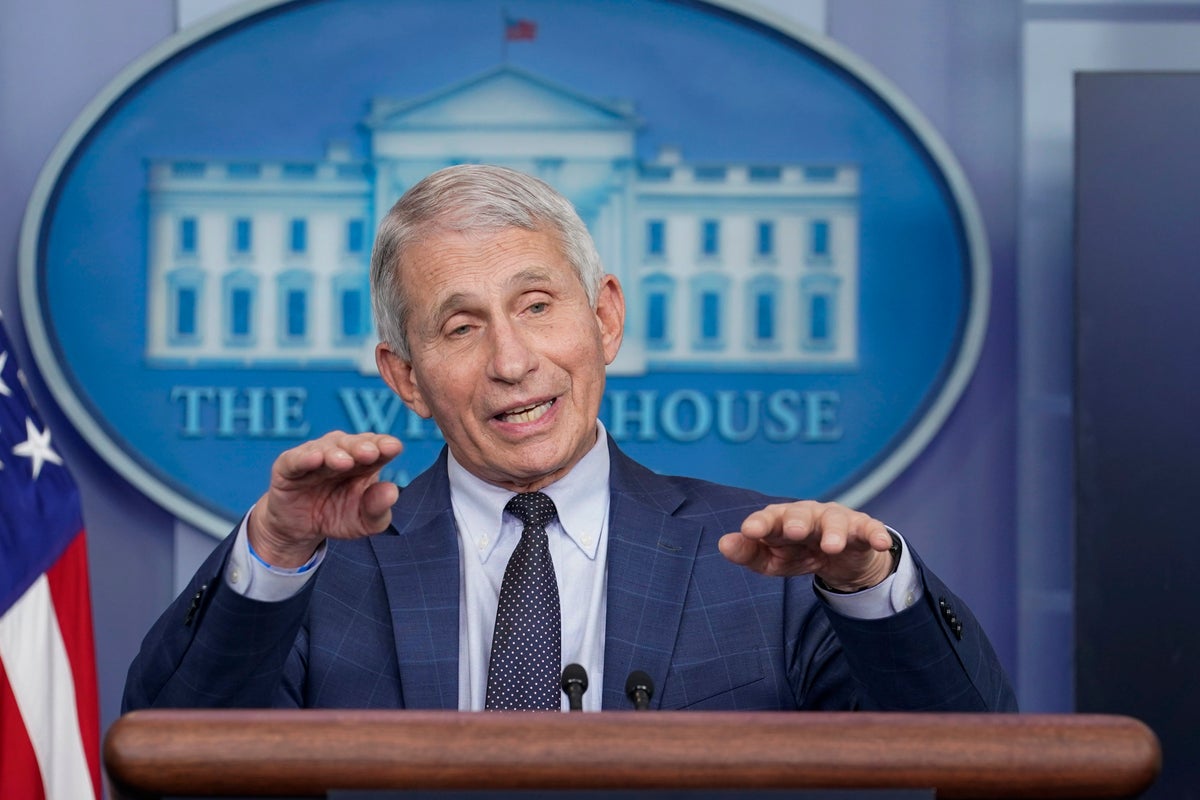
Dr Anthony Fauci, the White House’s chief medical adviser and director of the National Institute of Allergy and Infectious Diseases, says that pandemic fatigue from even the most cautious people is proving to be one of the barriers to containing the most recent wave of Covid-19 infections.
Speaking to Politico in an exclusive interview last week, the 81-year-old physician – who noted in the one-on-one that he plans to tie his retirement to the end of US President Joe Biden’s term – explained how even the most compliant individuals are finding themselves “tired” of the seemingly endless variants, surge, wave, restrictions pattern that’s been playing out for the better part of the past two years.
“It’s becoming more and more difficult to get people to listen, because even the people who are compliant want this behind them,” Dr Fauci said to Politico.
But, the chief medical adviser to Mr Biden emphasised, this doesn’t mean that everyone should just simply give up. Instead, he suggested making smaller, less life-altering changes to mitigate the risk of reinfection and breakthrough cases.
“What I try to convince them [of], with my communication method, is we’re not asking you to dramatically alter your lifestyle. We’re not asking you to really interfere with what you do with your life. We’re just asking you to consider some simple, doable mitigation methods,” he said.
The advice from the country’s top infectious disease expert arrives as states across the nation and countries across the world grapple with the latest variants of concern, Omicron subvariants BA.4 and BA.5, with the latter now accounting for 77.9 per cent of the circulating coronavirus variants in the US for the week ending on 16 July, according to the US Centers for Disease Control and Prevention (CDC).
Though deaths from these new variants still remain less of a risk than more deadly variants, such as the Delta strain which was believed to be more than twice as contagious as previous variants and some studies showed that it was more likely than the original virus to put infected people in the hospital, Dr Fauci said that the emergence of this latest strain – which has the insidious capability to evade immunity from previous iterations – highlights the importance of getting booster shots.
“Variants will continue to emerge if the virus circulates globally and in this county,” Dr Fauci said during a press conference earlier this month. “We should not let it disrupt our lives, but we cannot deny that it is a reality that we need to deal with.”
According to the latest CDC figures, approximately 80 per cent of eligible American adults have received at least one Covid-19, but less than half of those individuals have followed up by getting their first booster.
When you narrow down to younger populations, the numbers paint an even grimmer picture, as only 30 per cent of kids between five and 11 years old are fully vaccinated, despite the age group being opened to the vaccine program since November 2021.
Dr Fauci’s advice around the latest surge mirrors that of many state health officials across the country, who themselves are witnessing major surges in cases but remain cautious in issuing any major restrictions.
In the past two weeks, hospitalisations have climbed 20 per cent across the nation, but health officials in places like Chicago – where the Covid warning was raised to “high” earlier this month – told residents that there would be no new restrictions placed on their movements, noting that the current strain didn’t pose a significant threat to uprooting their lives.
While a public health officer in Washington state said last week that though officials were discussing reissuing a mask mandate, the group said they’d ultimately prefer it
“We’re not going to be able to have infinite series of mandates forcing people to do this, that and the other,” he said, according to The New York Times.
Dr Fauci, who acknowledged in a separate interview with NBC New York that the highly transmissible BA.4 and BA.5 were both “something we absolutely need to take seriously”, recommends that individuals prioritise getting vaccinated, including getting your booster, and continue to practise caution where possible to avoid reinfection from the virus.
“We still don’t have as many people vaccinated as we need, only 67% of the population, only half of those are boosted,” he said to NBC News.
“We need to be using the mitigations that we have available -- masking where appropriate, vaccinating people who aren’t vaccinating and boosting people who are ready and eligible for their boost. We’re not doing it to the extent that we should be doing it.”







